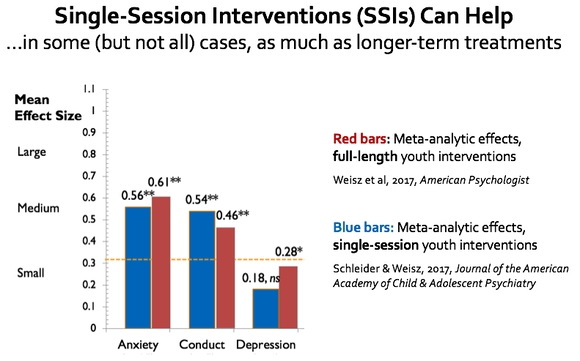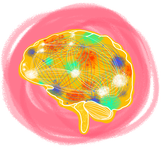Despite progress in the identification of effective youth mental health interventions,
rates of youth mental illness remain stable and high.
Low access to treatment contributes to this problem:
In the U.S., up to 80% of youths in need of psychological services never receive them.
rates of youth mental illness remain stable and high.
Low access to treatment contributes to this problem:
In the U.S., up to 80% of youths in need of psychological services never receive them.
The goals of our research are:
(1) Build brief, barrier-free supports—especially single-session interventions—to promote mental health at scale |
(2) Identify mechanisms of change and treatment-matching strategies to build powerful, personalized interventions |
(3) Test novel approaches to dissemination in non-traditional settings (beyond brick-and-mortar clinics) |




